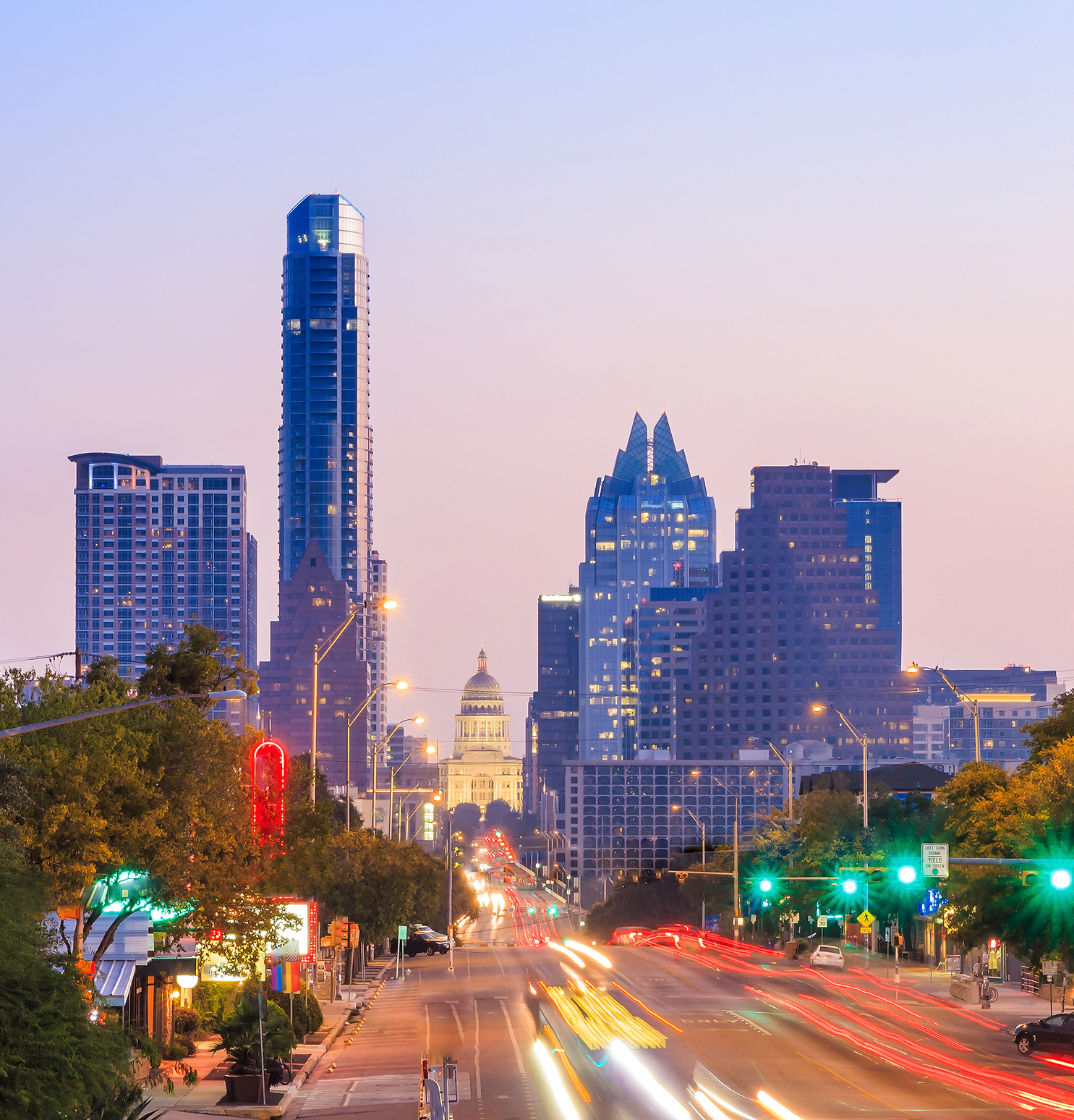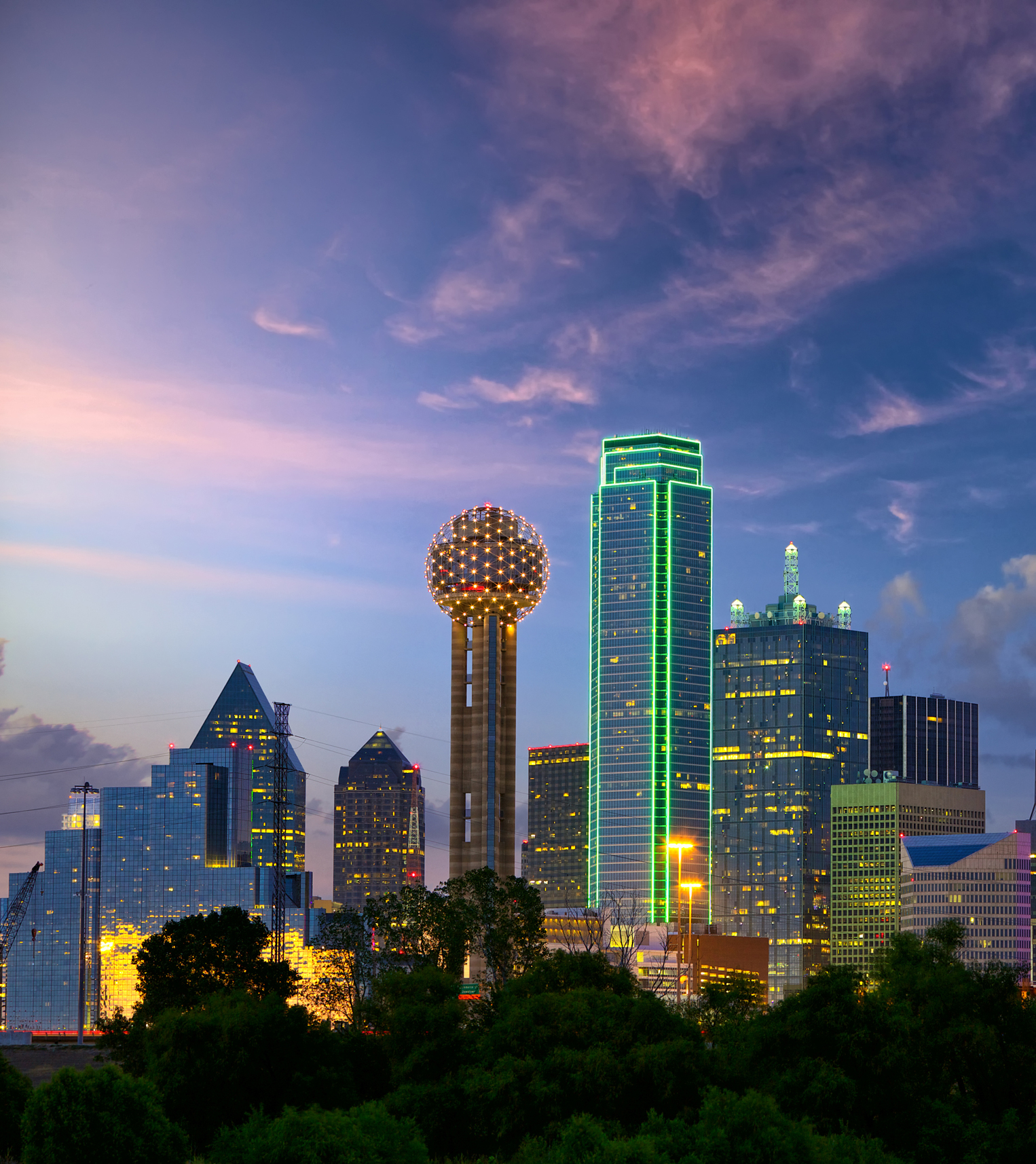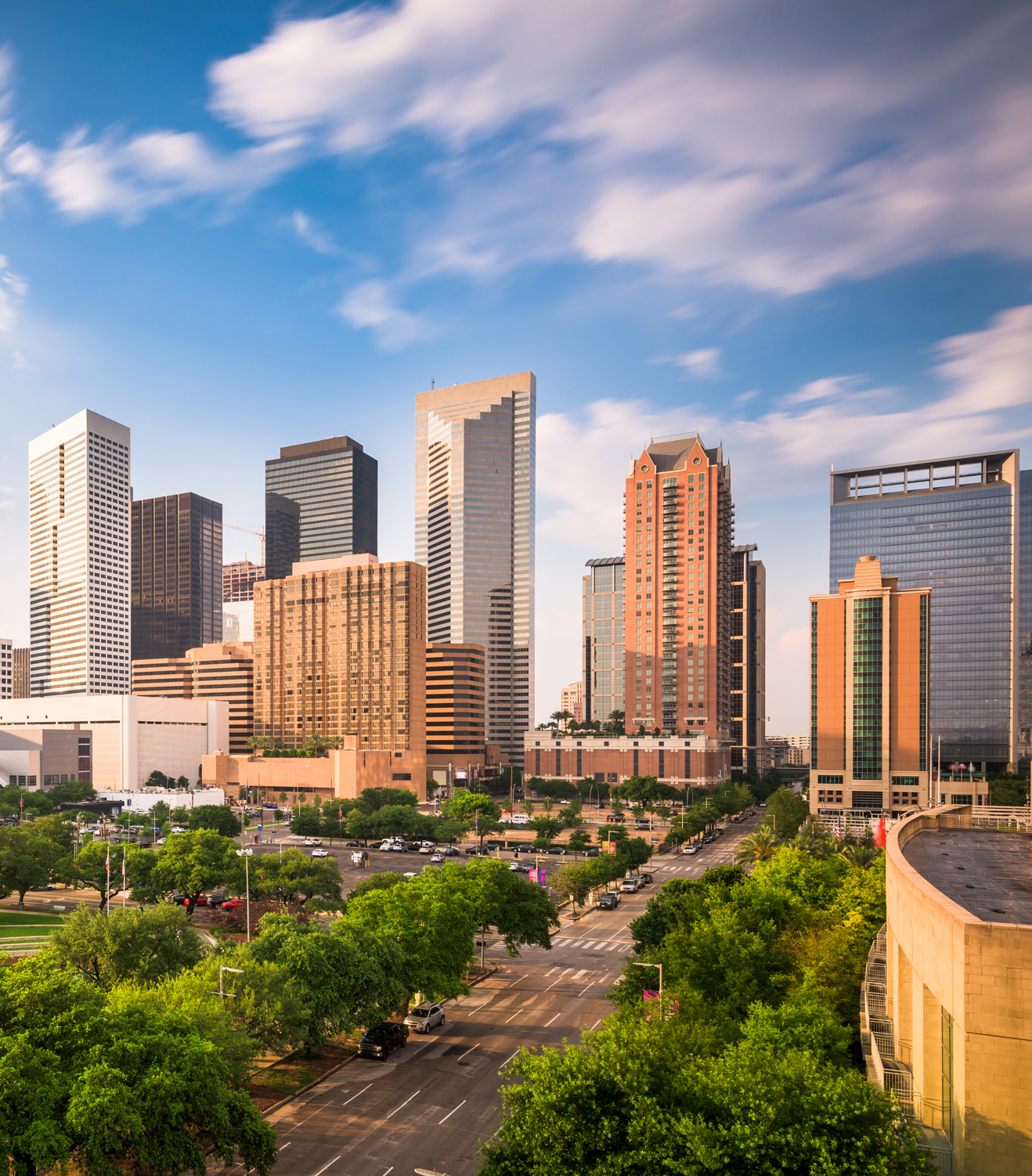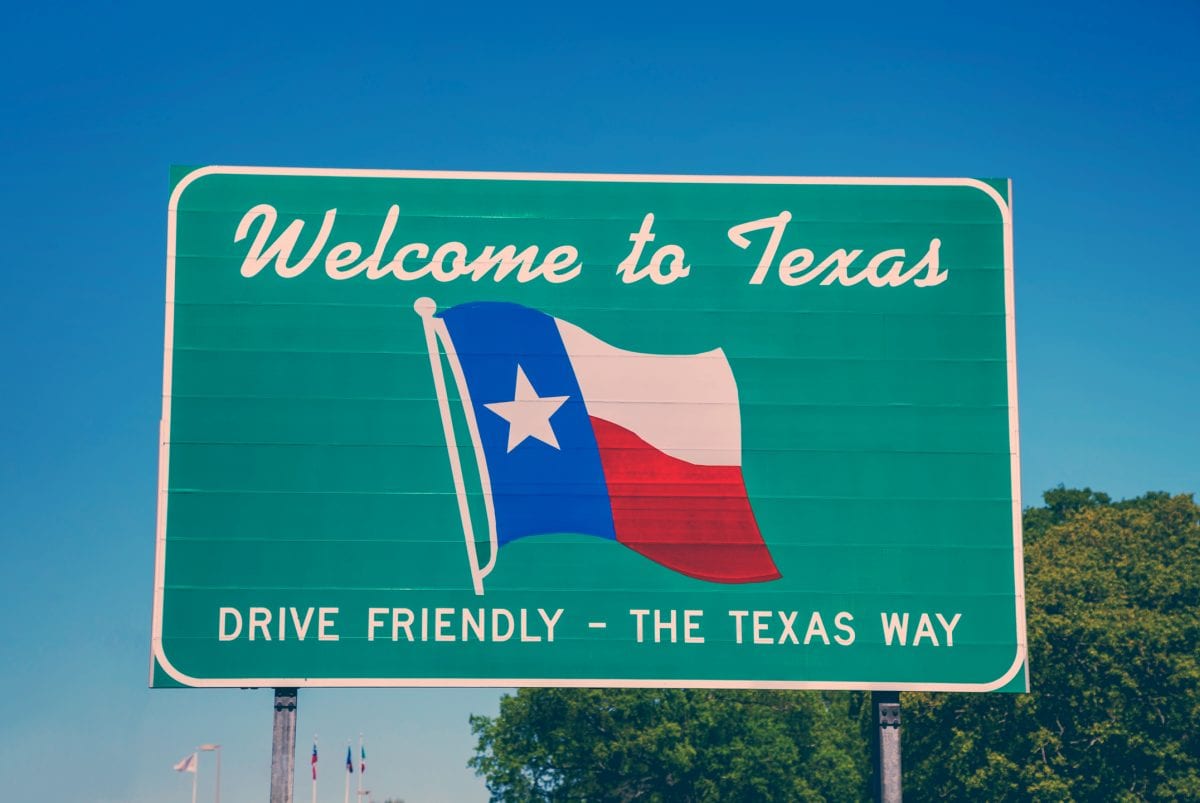Amazon HQ2 may be off the table for Texas, but there are still plenty of companies moving to Texas in 2019.
“New business coming to Texas is always good for steady employment and our tax base,” says The HT Group President Chad Macy. “Being in the people industry, The HT Group is always excited when companies locate to Texas.”
Many of the latest relocations come from California. In one year’s time, 1,800 companies left California and most made Texas their destination. In fact, once we got into researching this annual report on the companies moving to Texas, we couldn’t deny that the talent diaspora from the Golden State to the Lone Star State is shockingly apparent. See for yourself:
Austin and San Antonio Gain More Tech
 Just as Austin was licking its wounds from the Amazon HQ2 rejection, Apple announced it would nearly double its Austin-area workforce with 5,000 new jobs and potentially 10,000 more over time. While it’s not a relocation, the move is expected to make Apple the largest private employer in Austin and will be the company’s biggest corporate location outside of California.
Just as Austin was licking its wounds from the Amazon HQ2 rejection, Apple announced it would nearly double its Austin-area workforce with 5,000 new jobs and potentially 10,000 more over time. While it’s not a relocation, the move is expected to make Apple the largest private employer in Austin and will be the company’s biggest corporate location outside of California.
The title of Austin’s largest public company is up for grabs, too, with the addition of Resideo Technologies, Inc. to East Austin. The world’s No. 1 seller of home thermostats is initially creating nearly 100 new jobs in software engineering, marketing, sales, finance, and HR when it settles in Austin early this year.
While home thermostats have been around for decades, they’re now highly connected smart devices, which makes the move a big win for Austin’s tech sector. The company joins other tech-crossover companies expanding to East Austin, including “insurtech” company The Zebra, which plans to double their Austin workforce (again) by the end of 2019.
The U.S. Army is also taking advantage of Austin’s tech talent by selected Austin for its new Army Futures Command. According to an announcement by the federal agency, the command will assess future operational environments, emerging threats, and new technologies to develop and deliver concepts, requirements, future force designs, and modern material solutions to meet wartime needs.
According to the Austin Chamber, other relocations and expansions to Austin and the surrounding area include:
- Honor, a home care services company at the junction of healthcare and technology, is establishing a second operations center in Austin to supplement its California-based headquarters.
- High-end performance, recreational polyurethane wheel manufacturer AEND Industries, Inc. is moving its headquarters from Huntington Beach, California, to Hutto.
- Hyliion, which brings intelligent electric hybrid technology to the trucking industry, is moving its corporate headquarters from Pittsburg, Pennsylvania, to Cedar Park.
But what about San Antonio, which was recently named the fastest growing city in the nation by the U.S. Census Bureau? Much of San Antonio’s latest business growth is thanks to technology, too. Biotech, specifically, is on the rise within the city’s thriving tech and healthcare industries (which are expected to grow 12-15% by 2023 themselves). Tech incubators and Rackspace are attracting new startups, and biotech-friendly programs like the University of Texas Health Science Center at San Antonio are doing the same for promising new medical device and biomedical companies.
Other companies moving to Texas are being attracted to San Antonio, too. Investment management firm Victory Capital is moving its corporate headquarters from Cleveland, Ohio, and adding 50 new jobs as part of its acquisition of USAA Asset Management Company. And Okin Business Process Services now based in the Czech Republic is considering moving its headquarters and 1,400 jobs to San Antonio.
Jobs Heat Up in North Texas
 More than 75 companies have relocated their national or international headquarters to Dallas-Fort Worth in the past seven years. The biggest win for the DFW Metroplex in 2019 is Core-Mark, a Fortune 500 company moving to Westlake from San Francisco.
More than 75 companies have relocated their national or international headquarters to Dallas-Fort Worth in the past seven years. The biggest win for the DFW Metroplex in 2019 is Core-Mark, a Fortune 500 company moving to Westlake from San Francisco.
As Core-Mark’s President and CEO Scott McPherson tells the Dallas Business Journal, more favorable operating costs, lower taxes and a central location for Core-Mark’s nationwide business made the move an easy decision.
“The cost of operating out of the San Francisco Bay Area (is) high…Being closer to our customers and more central to our divisions will create cost and logistical efficiency for us,” he explains. The company, which distributes tobacco products and other items nationwide to convenience stores including 7-Eleven Inc. and other retailers, has advertised more than 150 jobs in Westlake including jobs in accounting, finance, human resources, information technology and purchasing.
Another big win for North Texas is PGA of America’s recent decision to move from Palm Beach County Florida to Frisco. While the actual move is still a few years off (in 2022), excitement is mounting about what else the move will bring: a hotel, convention center, and other facilities in a 600-acre complex as well as two PGA Championships, two KPMG Women’s PGA Championships and perhaps even the Ryder Cup.
McKesson Corp., the nation’s largest pharmaceutical distributor, will relocate its headquarters from San Francisco to Irving in April. The move makes McKesson the second-highest revenue company based in North Texas, surpassing AT&T Inc. but not Exxon Mobil. And Altair Global, a leading provider of relocation and assignment program services, is moving their global headquarters to Frisco by fall.
Southeast Texas Back on the Rise
 The Greater Houston Partnership forecasts the Houston metro area will create 71,000 new jobs in 2019. Gains are anticipated in all sectors with health care, construction and administrative services leading the growth. As Houston continues to break away from its singular reliance on oil and gas jobs, it’s starting to attract its own tech companies.
The Greater Houston Partnership forecasts the Houston metro area will create 71,000 new jobs in 2019. Gains are anticipated in all sectors with health care, construction and administrative services leading the growth. As Houston continues to break away from its singular reliance on oil and gas jobs, it’s starting to attract its own tech companies.
Startups like drone company Aatonomy are leaving California to take up residency in Houston because they’re looking for something a bit different than what Austin and San Antonio provide.
“There are cheaper cities than Houston, that’s not in itself a reason to move to Houston. It’s low cost despite being the fourth biggest city in the country,” Aanatomy Co-founder Wilson Pulling explains to the Associated Press, adding that Houston “is a place of industry, resolve, and action. BS doesn’t fly in Houston. And there’s a lot of BS in Silicon Valley.” These are just two examples of many startup companies moving to Texas in 2019.
In the surrounding Southeast Texas region, energy is still the key driver for new jobs and company relocations. An estimated $54 billion in potential new projects are planned for the area according to Jim Rich, Executive Director of the Southeast Texas Economic Development Foundation. He points out the following key projects, many by Texas newcomers:
- A $1.7 billion ethane steam cracker to produce polyethylene, which is being built through a partnership of TOTAL Petrochemicals and Refinery in Port Arthur, Calgary-based Nova Chemicals, and Vienna-based Borealis AG.
- A $10 billion expansion of the Golden Pass LNG terminal for exports funded by investors from Qatar and by ExxonMobil.
- A soon-to-be completed greenfield world-scale methanol production complex in Beaumont built by Netherlands-based OCI and Consolidated Energy Limited.
- Groundwork and pipeline network expansions for a third crude distillation unit at Exxon Mobil’s Beaumont refinery, which is set to double production capacity.
- A $10 billion liquefaction project of San Diego-based SEMPRA LNG and its wholly owned affiliate Port Arthur LNG.
Saudi Arabia also intends to invest billions into the Golden Triangle of Southeast Texas. America’s largest refinery in Port Arthur is now 100 percent owned by Saudi investors, who recently took steps to integrate petrochemicals into the business.
“These world-class companies chose the Golden Triangle for its unique infrastructure: extensive pipelines, storage, and transportation; skilled workers; knowledgeable support companies; and the right social and political climate to embrace investment and growth,” Rich explains.
What it Means to Other Texas Employers
With an already saturated job market, Texas employers should keep an eye on these newcomers and devise a strategy surrounding these changes. In many cases, an influx of business can improve business for all. More jobs attract more top talent to the state – and that relocated top talent often brings with them families also on the hunt for jobs and the need for supporting services.
But make no mistake: Job seekers are looking for competitive packages and strong work cultures. As there are more companies moving to Texas in 2019, it’s more important than ever to work with Texas staffing partners, tech recruiters, and executive search firms who can help you get ahead.





